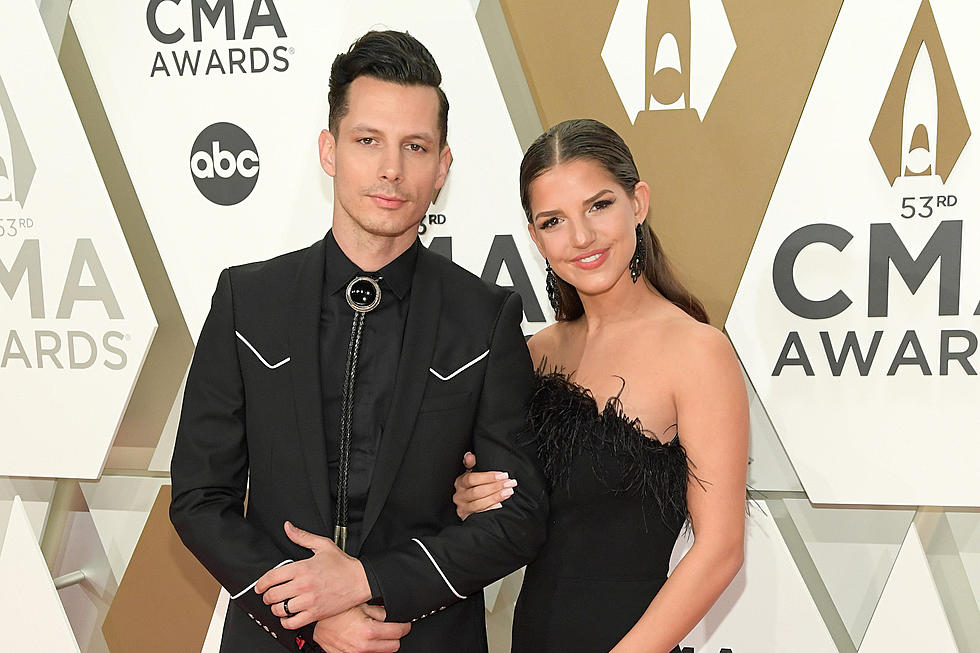
Devin Dawson Reveals He’s Been Dealing With a Vocal Condition
It's been more than a year since Devin Dawson released his last collection of music with 2021's Pink Slip, and apart from a handful of posts, the singer has been mostly quiet on social media this year, too.
In a new interview with SiriusXM the Highway's Storme Warren, Dawson explains his absence, revealing that an unforeseen issue caused him to slow down his solo artist career.
"It’s been an interesting year for me," Dawson prefaces. "There’s been a lot of great stuff that has happened, but then a lot of really hard stuff, too."
The "God's Country" songwriter has been dealing with a vocal condition known as dysphonia, he shares. The name dysphonia is a term for disorders of the voice, and Dawson explains that the condition simply means that he "cannot phonate" or "has trouble making noise."
He started feeling that something was wrong a little less than a year ago.
"It started when we were opening up for Zac Brown like last December," he recalls. "We were just playing shows and doing the whole thing like we always do, and there were certain notes in the middle of my range to the lower part of my range where it was like, 'Why does this not feel the same? How is it hard to have control and tone in the lower part of my voice?' Because usually it’s like you’re taking keys down because you can’t sing as high because your voice is gone or it's tired or whatever."
"It was the middle to the lower part of my range, and I was like, ‘Man, there's something weird,'" he adds.
Dawson saw a doctor at Vanderbilt Medical Center, and to his surprise, there was nothing physically wrong with his vocal cords. He also saw a doctor in Boston and was given much of the same information. He doesn't know of any clear cause for his vocal issues, but he thinks it may have started due to mental stress (he had also been dealing with a back issue from a past car accident and a recent COVID-19 diagnosis).
It's also possible that there is a disconnect in the way "the brain activates the muscles," he says. Dawson's condition is primarily affecting the middle to lower part of his vocal range — he doesn't feel any pain.
As he isn't one to say "woe is me," the singer immediately dove into working to remedy the issue. He tried a wide range of treatments including physical therapy, speech therapy, vocal massage, sound baths and "holistic training." He has also worked on the mental side of things by trying talk therapy, PTSD therapy, EMDR (eye movement desensitization and reprocessing), yoga and more.
None of these have offered Dawson a quick fix, but he says he's currently doing speech therapy three times a week and he has hope that his voice will eventually return to normal. He has also found comfort in finding other singers who have encountered this problem and overcome it.
"It's not going to be a forever thing," he assures. "There’s a lot of people in town — friends, artists, songwriters — that have and are still dealing with deal it ... It’s something that I’ve realized is not common, but it definitely happens to people, but no one ever really talks about it."
Although his vocal condition hasn't allowed him to record his own new music, Dawson says he's been writing a great deal for other people. He is, of course, the writer behind many hit songs, including Blake Shelton's aforementioned megahit, and this time has allowed the writer to help other artists where he can.
"Eighty-five to 90 percent of what I've been doing the last six months has been helping others," he says. Dawson has still been writing his own music, too, and he's looking forward to sharing it with fans when he has "full access" to his musical abilities.
"Nobody wants to make another record or go on tour more than me," he insists. "I promise you that. But it's important for me to be in a good headspace and physical space and be healthy enough to do it. My fans and myself, we both deserve to do it when I have full access to my superpowers. The full bag, the full range."
"When that's going to happen, I don't know. I promise you it will, though," he later adds.
Top 10 Country Songs of 2022 So Far, Ranked
More From Taste of Country






![Hardy’s ‘One Beer’ Is a Reminder That Lemonade Comes From Lemons [Listen]](http://townsquare.media/site/204/files/2020/03/Michael-Hardy-Picture.jpg?w=980&q=75)


